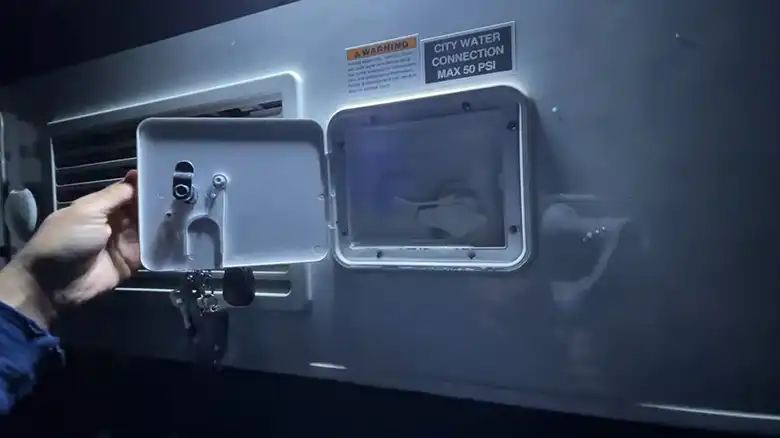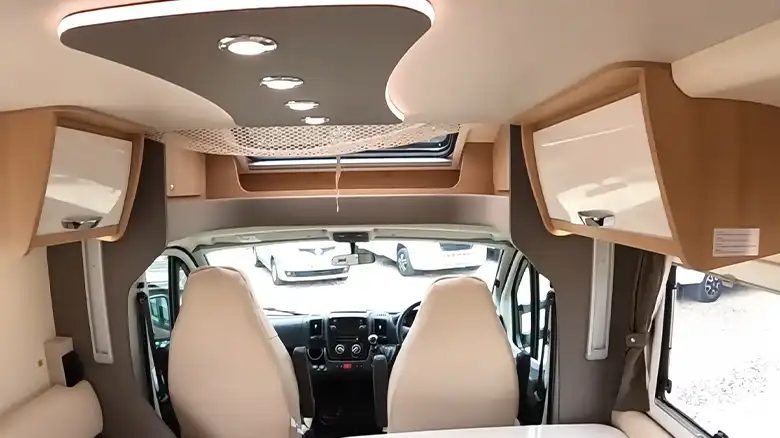Towing a trailer is a common task for many individuals, whether for recreational purposes or professional use. Ensuring a secure and reliable connection between the tow vehicle and the trailer is of utmost importance. One critical aspect of this connection is the compatibility between the trailer’s coupler size and the hitch ball on the towing vehicle. In some instances, you might find yourself needing to use a 2-inch ball with a 2 5/16-inch hitch or vice versa.
In this article, we aim to explore the reasons behind this compatibility mismatch, how to address it using hitch adapters, safety concerns and frequently asked questions related to this issue.
If you are looking for a short answer though, generally 2” ball doesn’t work with a 2 5/16 hitch. But you can make do using an adapter, which we will discuss in detail below.

Why You Might Need to Use a 2-Inch Ball with a 2 5/16-Inch Hitch
Compatibility issues between hitch balls and trailer couplers can arise for several reasons:
Mixed Fleet: If you own or operate multiple trailers, they may have different coupler sizes. In such cases, having a solution to make your 2-inch ball work with a 2 5/16-inch hitch can be convenient.
Rental Trailers: When renting trailers, you might encounter various hitch ball sizes on the rental equipment. Adapting your hitch to accommodate these differences can save time and effort.
Upgrading Trailers: You might have a new trailer with a different coupler size than your previous one. Rather than replacing your hitch entirely, an adapter can be a cost-effective solution.
How to Use Hitch Adapters to Resolve Ball and Hitch Mismatch
Hitch adapters are the key to resolving compatibility issues between different-sized hitch balls and couplers. These adapters come in various configurations and are designed to bridge the gap between the two components. Here’s how to use a hitch adapter effectively:
Select the Appropriate Adapter
The first step is to choose the right hitch adapter for your specific situation. Determine the size of the hitch ball you have (e.g., 2 inches) and the size of the coupler on your trailer (e.g., 2 5/16 inches). Purchase an adapter that can accommodate these sizes.
Inspect the Adapter
Before using the adapter, conduct a thorough inspection. Ensure that it is in good condition with no visible signs of wear or damage. Safety should be a top priority.
Securely Install the Adapter
Attach the adapter to your hitch’s receiver, making sure it is securely in place. Some adapters may require a pin or locking mechanism for added security. Follow the manufacturer’s instructions for installation.
Attach the Hitch Ball
Once the adapter is in place, attach the appropriate hitch ball to the adapter. Ensure that the ball is tightened securely, and check for any signs of movement or play.
Test the Connection
Before towing your trailer, perform a visual inspection of the entire setup. Make sure the coupler on your trailer engages with the hitch ball and that it is securely locked in place.
Safety Concerns
While using a hitch adapter can resolve compatibility issues, it’s crucial to be aware of the safety concerns associated with this solution. Safety should always be the top priority when towing a trailer. Here are some key safety considerations:
Weight Capacity
Ensure that the hitch adapter you choose is rated for the weight capacity of your trailer. Exceeding the adapter’s capacity can lead to dangerous situations.
Regular Inspection
Regularly inspect the adapter, hitch ball, and coupler for signs of wear, damage, or corrosion. A compromised connection can lead to accidents on the road.
Tightening and Locking
Double-check that all components are securely tightened and locked in place before towing. Loose connections can result in accidents and damage.
Proper Setup
Make sure the trailer coupler is properly aligned with the hitch ball and locked securely. Any misalignment or insufficient locking can result in detachment during travel.
Speed and Handling
Be mindful of the trailer’s handling and your driving speed. Sudden movements, high speeds, and rough terrain can place additional stress on the connection.
Questions Your Creative Mind Can Ask
Are hitch adapters legal to use?
Yes, hitch adapters are legal to use, as long as they comply with local and state regulations and have an appropriate weight capacity for your towing needs.
Can I use a hitch adapter for other size differences, such as 1 7/8-inch to 2-inch or vice versa?
Yes, you can find hitch adapters for various size differences, making them versatile solutions for different trailer coupler sizes.
Do I need to grease the hitch ball when using an adapter?
It’s a good practice to apply grease to the hitch ball to reduce friction and prevent wear, especially when using an adapter. This also helps with smooth coupling and uncoupling.
Can I switch between different-sized adapters for different trailers?
Yes, you can switch between different-sized adapters as needed, provided they are properly rated for your towing requirements.
What should I do if my adapter becomes damaged or worn?
If your adapter shows signs of damage or wear, replace it immediately. Using a damaged adapter can compromise safety.
End Notes
The compatibility between the hitch ball on your towing vehicle and the coupler on your trailer is essential for safe and successful towing. When faced with the need to make a 2-inch ball work with a 2 5/16-inch hitch or vice versa, using a hitch adapter is a viable solution. By choosing the right adapter, maintaining it properly, and following safety guidelines, you can confidently tow trailers of different coupler sizes while minimizing the risk of accidents and detachment. Always prioritize safety, perform regular inspections, and adhere to best practices when using hitch adapters to ensure a safe and reliable towing experience.


